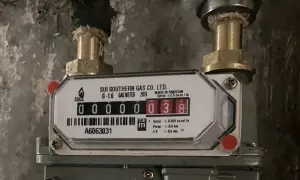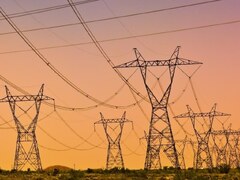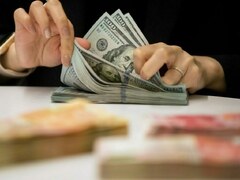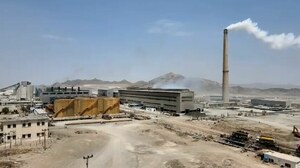Israeli excavation work near an entrance to a compound in Jerusalem that houses al-Aqsa mosque on Tuesday drew Palestinian protests and Israeli assurances the dig would not harm Islam's third holiest shrine.
Israeli police stationed reinforcements in the alleyways of Jerusalem's walled Old City to head off feared Palestinian violence at a site at the heart of the Arab-Israeli conflict.
The Fatah faction led by President Mahmoud Abbas said in a statement any damage to the mosque would release Palestinian militant groups from a ceasefire with Israel in the Gaza Strip they declared last November.
The governing Hamas movement, which took power last March, said "any assault" on the mosque "will lead to a termination of the limited ceasefire" with Israel and would spark "a volcano of anger".
Israel's Antiquities Authority said it was searching for artefacts at the base of the compound known to Muslims as Haram al-Sharif and to Jews as Temple Mount before construction of a pedestrian bridge to replace a ramp leading up to the complex.
Jordan's King Abdullah said the work could derail the revival of Arab-Israeli peace talks. Israel's opening of an entrance to an archaeological tunnel near Haram al-Sharif in 1996 triggered Palestinian protests and led to clashes in which 61 Arabs and 15 Israeli soldiers were killed.
Two bulldozers began breaking up parts of the pavement at the foot of the ramp, damaged by a snowstorm and an earthquake in 2004, to clear the way for what the authority called a "salvage excavation".
After an all-clear from the authority that no artefacts remain, plans can be finalised for the 100-metre (yard) pedestrian bridge to the Mughrabi Gate entrance to Haram al-Sharif, which overlooks Judaism's Western Wall.
Palestinian Prime Minister Ismail Haniyeh of Hamas said before leaving for unity talks with Fatah in Mecca that Israel was out to cause "direct harm" to al-Aqsa.
"I appeal to all our Palestinian people to be united and to rise up together to protect al-Aqsa and the holy sites on the blessed land of Palestine," Haniyeh said.
Jordan's King Abdullah was quoted by state news agency Petra as saying: "What Israel is doing in its practices and attacks against our sacred Muslim sites in Jerusalem and al-Aqsa is a blatant violation that is not acceptable under any pretext."
Israel said the excavation work, some 50 metres (yards) from the existing ramp, would do no damage to al-Aqsa or the Dome of the Rock mosque which is also located on the hilltop compound where the two biblical Jewish temples once stood.
"The activities being carried out do not harm and will not harm any of the holy places," Israeli Foreign Minister Tzipi Livni said, accusing Israel's enemies of exploiting "every opportunity to stir the most radical emotions". A Palestinian uprising began in 2000 after then-opposition leader Ariel Sharon toured the compound.
Gideon Avni, the Antiquities Authority's director of excavations and surveys, told reporters at the site: "Nothing in the work touches the wall of the Temple Mount. The wall is firmly embedded in the rock and there is no way that such work can cause damage to the Roman walls of the Temple Mount."
Avni said the project had not been co-ordinated with the Islamic trust, or Waqf, that administers Haram al-Sharif. "We are not hiding anything. Everything will be displayed to the public. The Waqf is invited to come and look at the results and give their comments," he said. Israeli police arrested 11 people during protests in Jerusalem but said there were no major confrontations.
In Bethlehem, crowds of Palestinians threw stones at Israeli soldiers outside Rachel's Tomb, a holy site at the entrance to the West Bank city. The soldiers responded with tear gas.
Hamas supporters held a rally in Gaza against the dig. Israel annexed East Jerusalem after the 1967 conflict in a step that has not been recognised internationally. Palestinians want the eastern part of the city as the capital of a future state.
BR100
16,313
Increased By
5.8 (0.04%)
BR30
52,359
Increased By
821.6 (1.59%)
KSE100
158,037
Increased By
83.9 (0.05%)
KSE30
48,251
Increased By
52.4 (0.11%)






















Comments
Comments are closed.